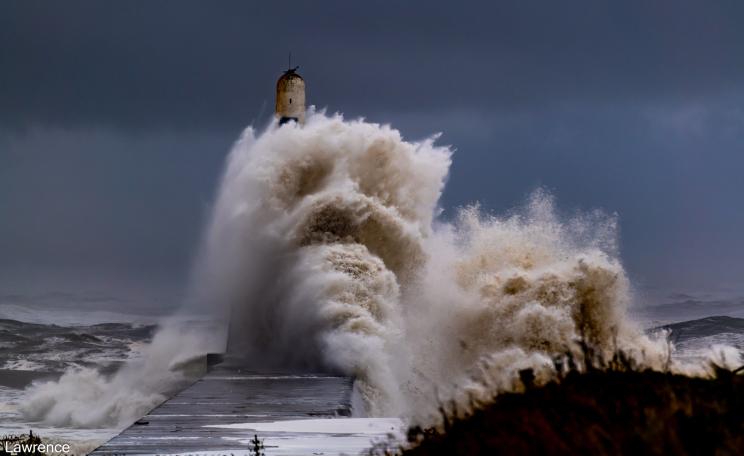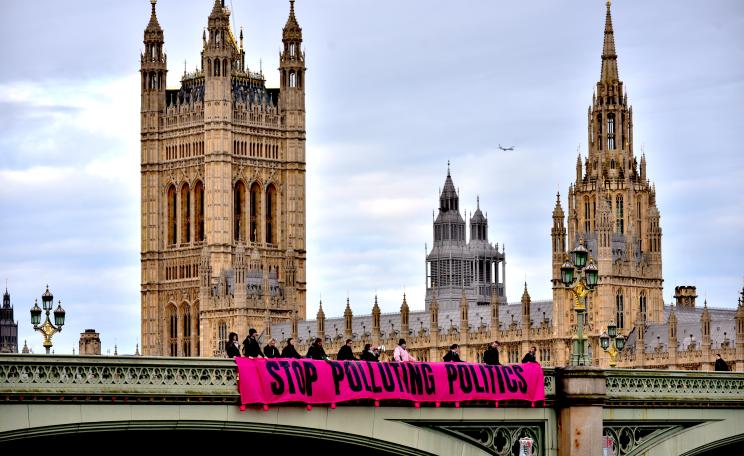If we want to live, we need to rewild.
The need for rewilding is no longer a matter of debate. The UN’s leading scientists have done the maths and the task is vast and urgent.
An area the size of China needs to be returned to nature by 2030 to avoid the collapse of our life support systems. If we want to live, we need to rewild.
The UK is one of the ‘most nature depleted’ nations on the planet and we the public have shown overwhelming support for the restoration of this missing nature. So surely a rewilding revolution is all but inevitable?
Super rich
If only. For as much as we, the general public, may long to step up to the challenge and get on with the job of restoring our lost wildlife, there is a brutal reality we must face up to first: the astonishing inequality of our nation’s land ownership.
The ownership of land in the UK is stunningly unbalanced. A total of 50 percent of England is owned by less than one percent of its population.
In Scotland, just 450 individuals own half the land. The billionaire James Dyson alone owns 33,000 acres - that’s more land than the entire metropolitan area of Manchester, home to half a million people.
And whilst the occasional community buyout does manage to prize a few acres out of the hands of the super rich, the sad truth is that the vast majority of us have absolutely no say over the state of the British landscape at all.
But why does this matter? With only a tiny fraction of the population earning a living from the land, surely the rest of us simply don’t need a say in how the nation’s land is used?
Uplands
But we do. With the threat of climate breakdown looming, the wildness or unwildness of a large landowner’s estate matters to us all, just as much as the balance sheet of an oil major or an airline does.
With this massive piece of responsibility in their hands, are the UK’s land owning elite acting with our ecological integrity, let alone our children’s futures in mind? Quite simply, no.
The Rewilding Network - run by the trail blazing charity Rewilding Britain - currently lists just 234,515 acres of the UK as being currently rewilded. That’s, wait for it… a miniscule 0.4 percent of the UK.
And it’s not just a matter of missed opportunities either. Many of the UK’s biggest landowners continue to stage an active assault on our wildlife.
In parts of our uplands where rare temperate rainforest should grow, you’ll frequently find barren grouse moors instead.
Effective
If a soy plantation in the Amazon is a climate crime zone, these landscapes clearly are too. And yet, thanks to the power of our tiny landholding elite, they cover an area of land bigger than the entirety of Yorkshire - about three million acres.
If we want to live, we need to rewild.
In the midst of a global crisis, why is nobody screaming about this?
Tune in to some primetime wildlife TV or browse the ‘get involved’ page on a conservation group’s website and you’d be forgiven for thinking that land inequality either doesn’t exist or is a complete irrelevance to the emergency we face.
Far from holding power to account, such spaces are more likely to pass the buck on to you - often overwhelming you with advice on how to ‘rewild’ your garden. Mow the lawn less. Drop some seed bombs. Plant a bee friendly border.
All worthy endeavours, sure, but they’re about as proportionally effective at fighting the climate and nature emergency as changing your lightbulbs. The message might as well be, 'keep quiet and don’t think about the crisis'.
Priviledged
Because even if you did devote your life to persuading the UK’s population to rip up their patios and go wild, you’d have restored just 1.85 percent of the UK - the best estimate we have for urban green space in the UK, a figure that also includes urban parks.
Meanwhile, what about the 2,000 aristocrats who own a mindblowing 30 percent of England? They’d have been let totally off the hook. Talk about missing the point.
But this absurd foregrounding of people’s gardens as the UK’s primary arena for ecological salvation reveals a deeper dimension of land injustice.
One in eight households don’t have access to a garden at all, with ethnic minorities the worst affected. In England, Black people are four times less likely to have a garden than White people - a shocking 37 percent don’t have one compared with 10 percent.
By failing to question the importance of land ownership and power, the garden-obsessed eco-mainstream ends up pressuring and alienating those least privileged to take action.
Oceans
With not a single big NGO actively pressuring the country’s biggest landowners to rewild, we’ve clearly got our priorities wrong.
The fact is, we’ve been here before and we’ve failed to learn.
For years, as carbon emissions skyrocketed, fossil fuel propaganda successfully shifted responsibility from the polluter to the consumer.
As citizen’s lost sleep over their carbon footprints, twenty mega polluting companies happily worked night and day to pump out over a third of the modern era’s greenhouse gasses.
This tragic pantomime - in which we, the public, always seem to play a guileless ingénue - was staged again in the battle for our oceans.
Restoration
As the rest of us sought everlasting redemption for eschewing our plastic straws, it took Netflix’s Seaspiracy to call out the villain hiding right behind us: the fishing industry.
We were, again, finding ourselves trapped in "micro consumerist bullshit", to borrow a phrase from George Monbiot. Today, with rewilding, the same sad story seems to be replaying.
While a consumer shift towards plant based diets in the UK is essential and could spare millions of acres from animal agriculture, there’s no guarantee this would translate into rewilding.
Biofuels, monocultural tree plantations for carbon offsetting or an export orientated meat and dairy industry could easily fill the gaps and provide huge landowners with profitable ways of keeping our landscapes unwilded.
And it’s not just consumers who are unfairly being expected to carry the burden alone. Small and tenant farmers are today being unfairly positioned as the opposing force to nature restoration.
Challenge
The farmers vs rewilding narrative is just another distraction: if the history of agriculture in the last century tells us anything, it’s that small farmers will bend over backwards to do what wider society demands of them.
Today, the reality is that if a tenant farmer did want to rewild some of their land, this decision would ultimately have to be negotiated with their landlord.
So what are we to do?
Aghast by the near silence about landowner’s power to tackle the crisis - but inspired by trailblazers like Guy Shrubsole and Luke Steele who have been brave enough to report it - I and a small group of ecologists, experts and citizens decided enough was enough. We couldn’t stand by and let this landspiracy continue.
That’s why we founded a new campaign group called Wild Card. Our aim is simple: to call on the UK’s biggest landowners to step up to the challenge and rewild.
Collective
But beyond this, we have a broader democratic aim; to provide a space where everyone - garden or no garden, privilege or no privilege - can express their shared stake in the future of our land.
And while the anger in our bellies might have compelled us to go after the billionaires first, we know that now, more than ever, is a time for building consensus around climate action not division.
That’s why we launched the Wild Card campaign by focusing on three of the UK’s ancient institutional landowners that each, even today, play a part in the moral, spiritual and educational stewardship of our country: the Royal Family, the Church, and the Oxbridge Colleges.
Together, these three colossal landowners own vast swathes of our country and, more importantly, symbolically influence the decisions of other big landowners.
In June, we launched our Rewild the Royals campaign with a letter backed by more than a hundred leading scientists and public figures. Today, a petition being run in collaboration with 38 Degrees is closing in on 100,000 signatures - please sign and share it.
After thousands of years of unsuccessful struggle against land inequality, perhaps the climate crisis will finally and materially prove our collective investment in land. Let's hope so, before it's too late.
This Author
Joel Scott-Halkes @joelscotthalkes is a co-founder and spokesperson for the Wild Card campaign. Wild Card was launched in June 2021 and is calling on the UK’s biggest landowners to urgently rewild their lands.




